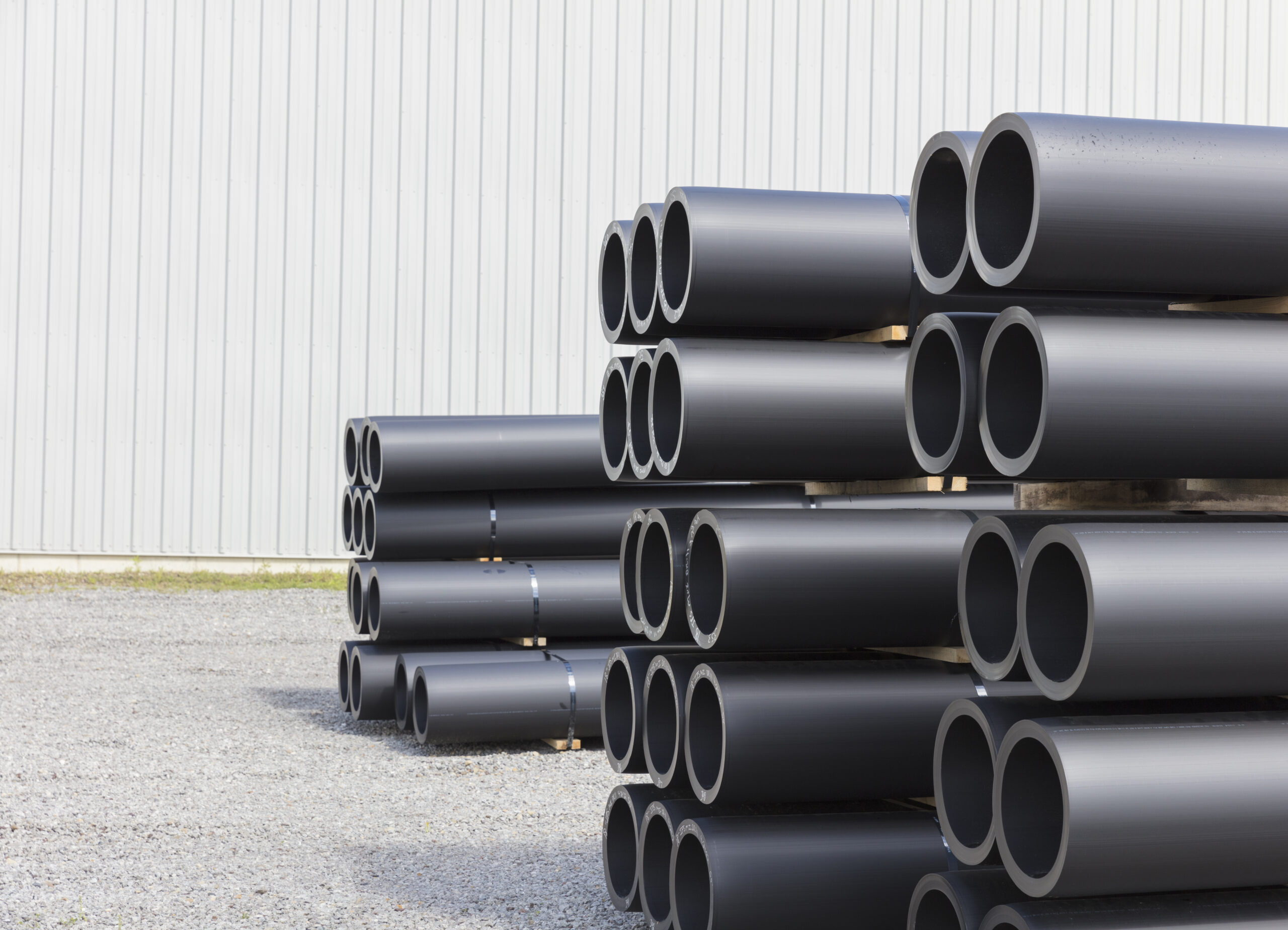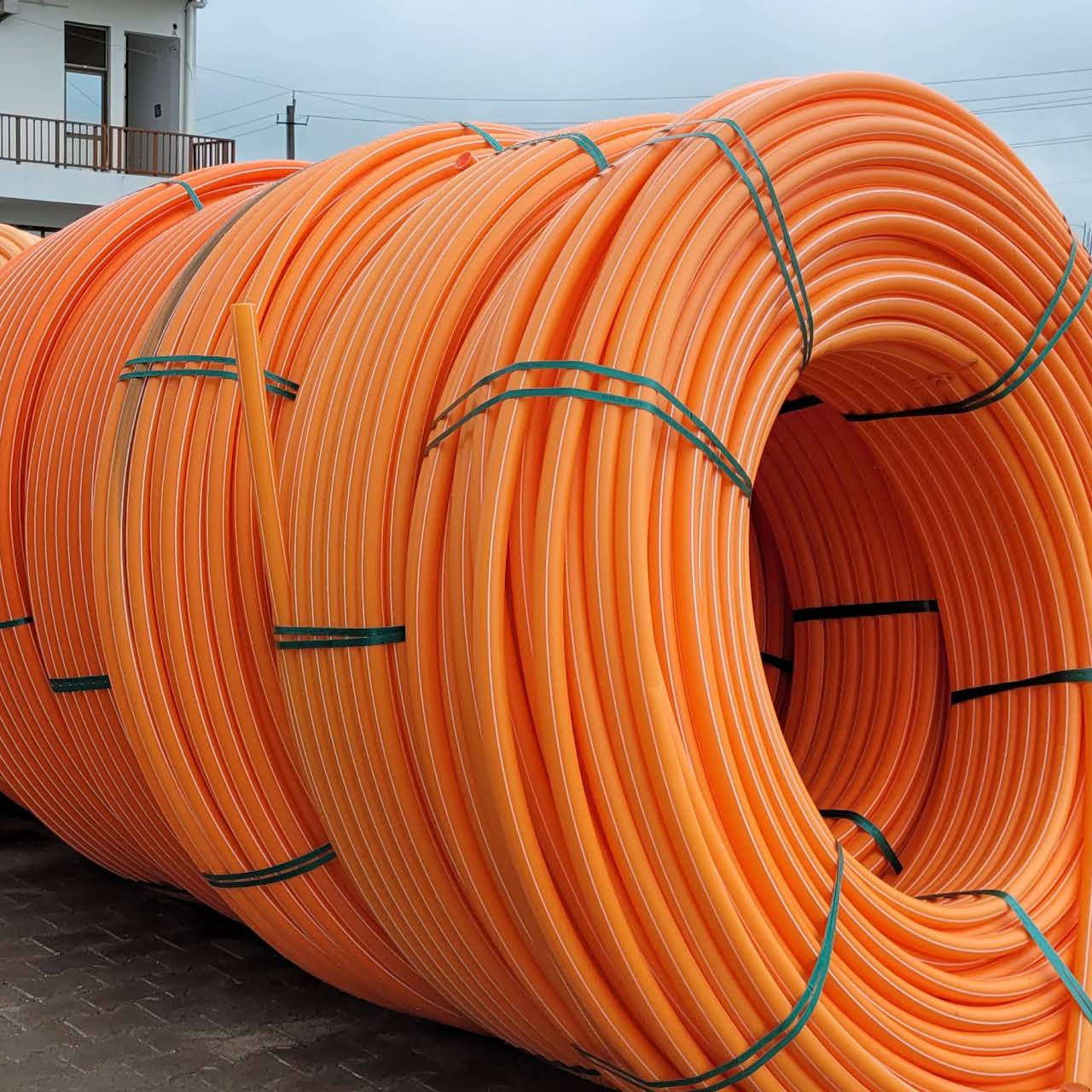How American Plastics HDPE Pipe Manufacturing Maintains Sustainability
Wiki Article
Understanding the Key Benefits of HDPE Pipe for Water and Wastewater Management
Using HDPE pipe in water and wastewater management offers countless advantages that warrant factor to consider. Its exceptional toughness and lengthy life expectancy make it a favored choice for many projects. Additionally, the product's resistance to deterioration and chemical damages improves its reliability in various settings. The benefits extend past just longevity and resistance. hdpe pipe fittings Midland TX. Discovering its cost-effectiveness and ecological effect reveals a lot more engaging reasons for its prevalent fostering in modern frameworkExtraordinary Resilience and Longevity

HDPE pipe attracts attention for its extraordinary durability and durability, making it a recommended choice in water monitoring systems. Built from high-density polyethylene, these pipelines can withstand considerable stress and stress, making certain reputable efficiency over time. Their robust nature allows them to endure extreme ecological problems, consisting of temperature changes and dirt motions, which can trigger other products to fall short.
The life-span of HDPE pipes commonly goes beyond 50 years, offering an affordable option for districts and sectors alike. Additionally, the material's lightweight properties simplify installation, decreasing labor expenses and timeframes. This sturdiness lessens the demand for constant fixings or substitutes, better boosting its financial allure.
In water monitoring applications, the integrity of HDPE pipelines indicates less interruptions and improved service continuity, making them essential to sustainable facilities development. The combination of longevity and long life strengthens HDPE's function as a foundation in efficient water monitoring solutions.

Resistance to Deterioration and Chemical Damage
While lots of products surrender to deterioration and chemical damages over time, HDPE pipelines show exceptional resistance, making them perfect for different water management applications. This resilience stems from the molecular structure of high-density polyethylene, which is naturally non-reactive and does not wear away like steels or break down from exposure to severe chemicals. Because of this, HDPE is extremely effective in environments with hostile materials, such as wastewater systems that might include acids, bases, and organic solvents.
Additionally, HDPE pipelines can hold up against environmental aspects such as soil acidity and saline problems, additionally improving their suitability for varied applications (Pipe Manufacturing Midland TX). Their capacity to preserve architectural stability gradually lowers the threat of leaks and failings, which is important in making sure the safety and integrity of water distribution and wastewater monitoring systems. The resistance to rust and chemical damages significantly adds to the total performance and durability of HDPE piping remedies.
Cost-Effectiveness and Economic Advantages
When considering the monetary effects of water management systems, the cost-effectiveness of HDPE pipelines comes to be noticeable. These pipelines offer lower installation and maintenance prices compared to standard products like metal or concrete. Their lightweight nature streamlines transportation and setup, leading to reduced labor costs. Furthermore, HDPE pipelines exhibit a long life-span, often surpassing half a century, which converts to fewer replacements and long-lasting financial savings.The resistance of HDPE to rust and chemical damages lessens the requirement for pricey fixings and substitutes. The pipelines also support efficient water flow, decreasing energy expenses connected with pumping systems. By alleviating leakages and water loss, HDPE pipes add to considerable economic benefits for towns and markets alike. Generally, the preliminary investment in HDPE piping can produce considerable monetary returns over the life-span of the water management system, making it a prudent option for sustainable infrastructure development.
Environmental Sustainability and Reduced Impact

Convenience and Flexibility in Installation
Due to the fact that of their one-of-a-kind residential or commercial properties, HDPE pipes supply impressive convenience and versatility in setup, making them suitable for a wide variety of applications. Their lightweight nature permits for much easier handling and transportation, reducing labor prices and setup time. HDPE pipelines can be curved and formed to fit various surfaces and job requirements, which is specifically helpful in challenging settings.Furthermore, their resistance to American Plastics HDPE Pipe Manufacturing deterioration and chemical damages permits for setup in varied settings without the demand for specialized protective coatings. The capacity to fuse joints creates a continual, leak-free system, enhancing the total integrity and integrity of the installation. HDPE's adaptability also fits ground movement, minimizing the risk of damage in areas susceptible to changing dirt. Overall, these qualities make HDPE pipelines not only functional yet also a preferred option for water and wastewater administration systems.
Often Asked Inquiries
Just How Does HDPE Pipeline Contrast to PVC in Water Administration Applications?
HDPE pipeline supplies exceptional versatility, resistance to deterioration, and sturdiness contrasted to PVC. Its lighter weight facilitates much easier installment, while its lengthy lifespan minimizes substitute prices, making HDPE a preferred option in water administration applications.What Is the Life-span of HDPE Pipes Under Typical Conditions?
Under common problems, HDPE pipelines can have a life-span varying from 50 to 100 years. Their resilience and resistance to corrosion add to their long-term efficiency in various applications, making them a trusted selection for infrastructure.Are HDPE Pipes Recyclable After Their Life Span?
Yes, HDPE pipes are recyclable after their life span. Pipe Supplier American Plastics Midland. They can be refined and repurposed into new products, greatly reducing ecological influence and advertising sustainability within the market, making them a green selection for piping optionsWhat Is the Setup Process for HDPE Pipes?
The installation procedure for HDPE pipes involves site prep work, trenching, pipe fusion or mechanical signing up with, backfilling, and stress testing. Proper methods ensure a resilient and efficient system for transferring water and wastewater effectively.Can HDPE Piping Be Utilized for Both Potable and Non-Potable Water Equipments?
Yes, HDPE pipelines can be used for both safe and clean and non-potable water systems. Their flexibility, toughness, and resistance to rust make them suitable for different applications, guaranteeing secure and effective transport of water in various contexts.Report this wiki page